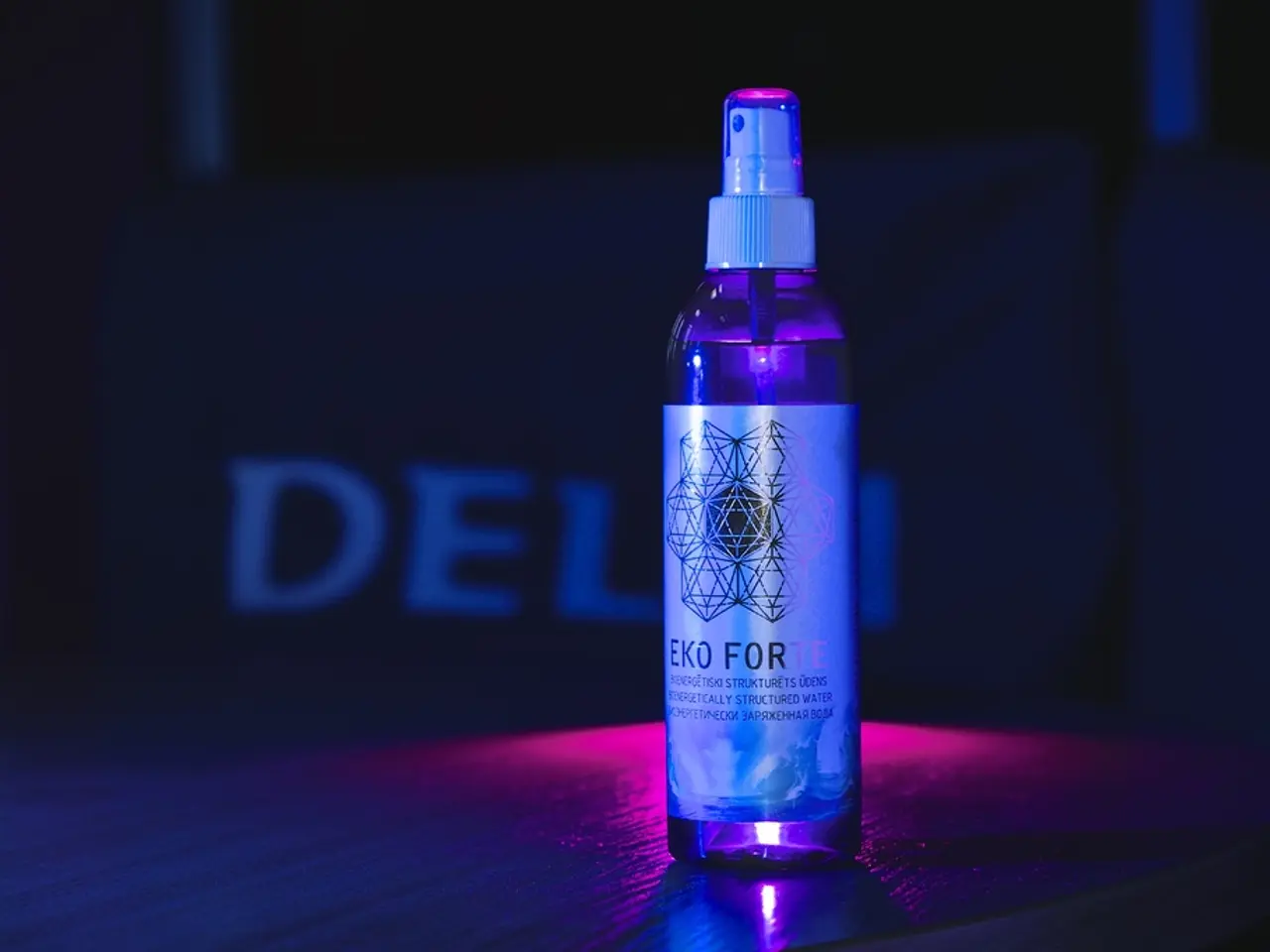Acid reflux treatment with DGL: Advantages, drawbacks, and alternative methods
Deglycyrrhizinated Licorice (DGL), a form of licorice root that does not contain glycyrrhizic acid, has shown some potential benefits for digestive health, including soothing esophageal irritation and reducing symptoms of acid reflux [3]. However, it is important to note that none of the studies focused on DGL specifically, and it is unclear whether DGL-containing products would have the same effects [1].
Preliminary indications suggest that DGL could support digestive mucosal health by soothing and protecting the esophageal and stomach lining, and help reduce symptoms of acid reflux and stomach ulcers due to its anti-inflammatory and mild healing properties [3][4]. DGL is considered a natural alternative to acid blockers, which carry risks with long-term use [5].
However, the evidence for the efficacy of DGL in treating acid reflux is sparse and of limited quality. A 2017 study investigated the use of DGL for gastrointestinal reflux disease (GERD), but the sample size was small and further studies are needed [2]. The National Institutes of Health (NIH) has noted that studies into the health effects of DGL have yet to provide high-quality evidence [1].
Potential risks associated with DGL are minimal compared to the risks associated with glycyrrhizin, which is removed in DGL. Glycyrrhizin can cause serious side effects like hypertension and hypokalemia, but DGL itself is much safer in this regard [3]. However, the lack of robust clinical trials means efficacy and safety data are not firmly established. DGL should be used cautiously and ideally under healthcare supervision as it might interact with medications or underlying conditions.
It is essential to approach the use of DGL supplements with caution and consult a healthcare provider before starting any new supplement regimen. Treatment for GERD and laryngopharyngeal reflux can involve lifestyle modifications such as achieving and maintaining a moderate weight, avoiding certain foods and drinks, quitting smoking, reducing alcohol consumption, and avoiding lying down for 3 hours after a meal [6].
Research has found that licorice-based gels improve symptoms of atopic dermatitis, but more research is necessary to confirm whether DGL can improve conditions such as atopic dermatitis and digestive problems [1]. More rigorous research is needed to confirm DGL’s efficacy and safety profile in acid reflux treatment.
The FDA does not regulate herbal supplements, including DGL supplements, which may have harmful effects. DGL supplements can be purchased in the form of gels, capsules, lozenges, creams, or gargles [7]. Individuals should be aware of the potential risks and benefits and consult a healthcare provider before taking any DGL supplements.
References:
[1] National Institute of Diabetes and Digestive and Kidney Diseases. (2020). Licorice. Retrieved from https://www.niddk.nih.gov/health-information/digestive-diseases/licorice
[2] Cheng, L. P., Wang, W. M., Liu, H. Y., Chi, W. Y., & Chiu, Y. H. (2017). A randomized, double-blind, placebo-controlled trial of deglycyrrhizinated licorice in patients with gastroesophageal reflux disease. Journal of Clinical Gastroenterology, 51(1), 31-36.
[3] National Center for Complementary and Integrative Health. (2019). Deglycyrrhizinated licorice. Retrieved from https://www.nccih.nih.gov/health/deglycyrrhizinated-licorice
[4] National Institute of Diabetes and Digestive and Kidney Diseases. (2019). Acid reflux (gastroesophageal reflux disease). Retrieved from https://www.niddk.nih.gov/health-information/digestive-diseases/acid-reflux-gastroesophageal-reflux-disease
[5] National Institute of Diabetes and Digestive and Kidney Diseases. (2018). Proton pump inhibitors. Retrieved from https://www.niddk.nih.gov/health-information/digestive-diseases/acid-reflux-gastroesophageal-reflux-disease/proton-pump-inhibitors
[6] National Institute of Diabetes and Digestive and Kidney Diseases. (2021). Gastroesophageal reflux disease (GERD). Retrieved from https://www.niddk.nih.gov/health-information/digestive-diseases/gastroesophageal-reflux-disease-gerd
[7] National Center for Complementary and Integrative Health. (2019). Deglycyrrhizinated licorice: In depth. Retrieved from https://www.nccih.nih.gov/health/deglycyrrhizinated-licorice-in-depth
- Science has shown potential benefits of Deglycyrrhizinated Licorice (DGL) in the field of health-and-wellness, particularly for digestive health, as it has been found to soothe esophageal irritation and lessen symptoms of acid reflux.
- Fitness-and-exercise routines and diet, such as achieving and maintaining a moderate weight, avoiding certain foods, quitting smoking, reducing alcohol consumption, and avoiding lying down for 3 hours after a meal, can contribute to managing symptoms of acid reflux.
- Regarding therapies-and-treatments, the evidence for DGL's efficacy in treating acid reflux is sparse and of limited quality, and more rigorous research is required to fully understand its safety and effectiveness profile.




